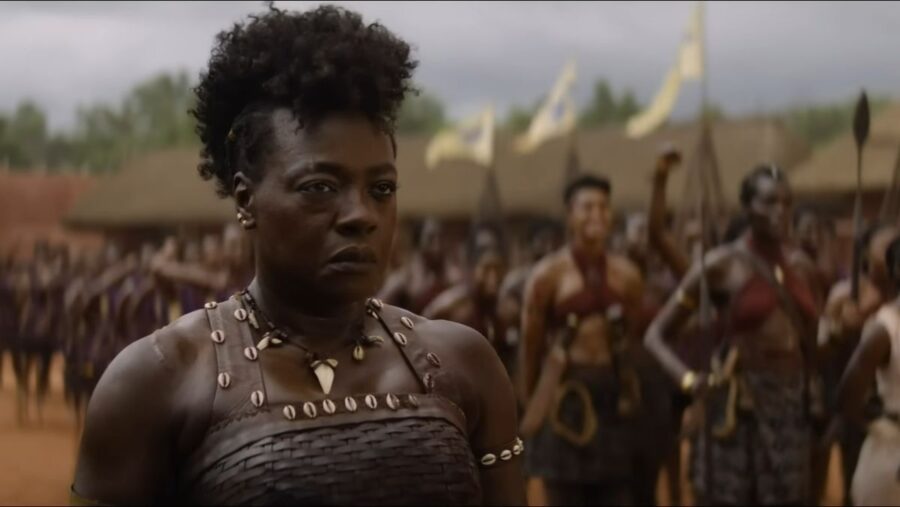Viola Davis Just Hit Back Against The Woman King Boycott
Viola Davis responds to those looking to boycott The Woman King, explaining that much of the story needed to be fictionalized.
This article is more than 2 years old
Viola Davis has responded to critics who are calling for a boycott of her new movie, The Woman King, stressing the importance of drawing in audiences and explaining that much of the story needed to be “fictionalized.” The actress’s film was released worldwide on September 17, but protests erupted on social media before its release. The historical epic takes place in 1820 in the Kingdom of Dahomey, an African kingdom that existed from the 17th to 19th centuries, during the height of the Atlantic Trade Triangle.
In response to the proposed boycott, Viola Davis and her husband Julius Tennon, who is also her producing partner, each spoke about the complaints. “We entered the story where the kingdom was in flux, at a crossroads,” said Davis in an interview with Variety. “They were looking to find some way to keep their civilization and kingdom alive. It wasn’t until the late 1800s that they were decimated. Most of the story is fictionalized. It has to be.”
Tennon added, “We are now what we call ‘edu-tainment.’ It’s history but we have to take license. We have to entertain people. If we just told a history lesson, which we very well could have, that would be a documentary. Unfortunately, people wouldn’t be in the theaters doing the same thing we saw this weekend… If people want to learn more, they can investigate more.”
The movie is about the Agojie, a division of woman warriors that formed part of the Dahomey military. Viola Davis plays Nanisca, a general of the Agojie, who is training the next generation for impending war with the rival kingdom of Oyo and their Portuguese allies. Directed by Gina Prince-Blythewood and written by Dana Stevens from a story by Maria Bello, it also stars John Boyega and Hero Fiennes Tiffin.

Boycotters are saying that the movie pays little heed to the African slave trade and the role of Dahomey in selling enslaved people to European traders. Dahomey was located in West Africa, in what is now the nations Benin and Togo. Historical artwork of the era supports this, celebrating Dahomey warriors and trade with the Portuguese that were immortalized on bronze plaques and other metalworks as chronicled at the Khan Academy.
The complaints about the movie’s historical accuracy began on Twitter, with some users claiming that it doesn’t say enough about the slavery that was rampant at the time or the role of Dahomey in perpetuating slavery. Counter-arguments have pointed out that it does address slavery and the oppression of women in Dahomey society, and accuse boycotters of trying to silence Black women in film.
In its opening weekend, the film grossed $19 million domestically and received acclaim from both film critics and audiences, despite the trending of the hashtag #BoycottWomanKing on Twitter. Its reception has been overwhelmingly positive and reviewers say it does touch upon the horrors of slavery, as well as the devaluation of women.
The movie also features a myriad of Black women in Hollywood, including Thuso Mbedu, Lashana Lynch, Sheila Atim, and Jayme Lawson. In the same way that Nanisca trains the younger generation of warriors in the movie, The Woman King has given a new generation of Black actresses a chance to shine, and the success of the movie puts these ladies in the spotlight where their talent can be displayed vividly. Working with a star of the caliber of Viola Davis can only boost them further.
Viola Davis is known for such roles as Amanda Waller in Suicide Squad and the television show Peacemaker, both of which show she’s no stranger to action movies. She also won an Oscar in 2016 for her role in Fences. She is the most-nominated Black woman in Oscar history, with four nominations. In addition to The Woman King, fans can expect to see her in the Hunger Games prequel, The Ballad of Songbirds and Snakes, in 2023.












